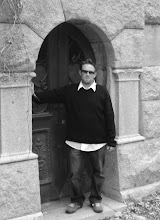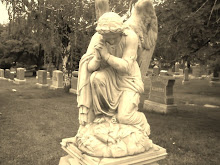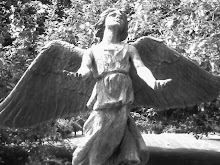
We are re-planning our trip to
If any of you know of more good places to research please drop us a line in the comment section and we will try to check it out.
Join us on our adventures to find out if we are really alone

We are re-planning our trip to
If any of you know of more good places to research please drop us a line in the comment section and we will try to check it out.



Information taken from Wikipedia on the EVP phenomenon.
Electronic voice phenomena (EVP) are electronically generated noises that resemble speech, but are not the result of intentional voice recordings or renderings. Common sources of EVP include static, stray radio transmissions, and background noise. Some have claimed these sounds are of paranormal origin, while there are natural explanations such as apophenia (finding significance in insignificant phenomena), auditory pareidolia (interpreting random sounds as voices in their own language), equipment artifacts, or simple hoaxes. Recordings of EVP are often created from background sound by increasing the gain (i.e. sensitivity) of the recording equipment.
As the Spiritualism religious movement became prominent in the 1840s–1920s with a distinguishing belief that the spirits of the dead can be contacted by mediums, new technologies of the era including photography were employed by spiritualists in an effort to demonstrate contact with a spirit world. So popular were such ideas that Thomas Edison was asked in an interview with Scientific American to comment on the possibility of using his inventions to communicate with spirits. He replied that if the spirits were only capable of subtle influences, a sensitive recording device would provide a better chance of spirit communication than the table tipping and ouija boards mediums employed at the time. However, there is no indication that
Konstantin Raudive, a Latvian psychologist who had taught at the University of Uppsala, Sweden and who had worked in conjunction with Jürgenson, made over 100,000 recordings which he described as being communications with discarnate people. Some of these recordings were conducted in an RF-screened laboratory and contained words Raudive said were identifiable. In an attempt to confirm the content of his collection of recordings, Raudive invited listeners to hear and interpret them. He believed that the clarity of the voices heard in his recordings implied that they could not be readily explained by normal means. Raudive published his first book, Breakthrough: An Amazing Experiment in Electronic Communication with the Dead in 1968 and it was translated into English in 1971.
 Wikipedia describes a mausoleum as follows; A mausoleum is an external free-standing building constructed as a monument enclosing the interment space or burial chamber of a deceased person or persons. A monument without the interment is a cenotaph. A mausoleum may be considered a type of tomb or the tomb may be considered to be within the mausoleum. A Christian mausoleum sometimes include s a chapel.
Wikipedia describes a mausoleum as follows; A mausoleum is an external free-standing building constructed as a monument enclosing the interment space or burial chamber of a deceased person or persons. A monument without the interment is a cenotaph. A mausoleum may be considered a type of tomb or the tomb may be considered to be within the mausoleum. A Christian mausoleum sometimes include s a chapel.
Some believe that a mausoleum will not allow the deceased to truly rest because the body is not below ground. They also say that many of the spirits of those who are laid to rest in them will spend eternity roaming the cemetery trying to find a way out.
These may all be myths, but this is another one of those items that we wish to study more.


 Lilly E. Gray died in Salt Lake City Utah, November 14th, 1958 she was 77 years old. She is buried in the Salt Lake Cemetery (down town) and supposedly died of natural causes. Her headstone has opened up one of the biggest mysteries in Salt Lake history. No one knows who had this inscription placed on her headstone....and no one can seem to find anything out about this mysterious woman.
Lilly E. Gray died in Salt Lake City Utah, November 14th, 1958 she was 77 years old. She is buried in the Salt Lake Cemetery (down town) and supposedly died of natural causes. Her headstone has opened up one of the biggest mysteries in Salt Lake history. No one knows who had this inscription placed on her headstone....and no one can seem to find anything out about this mysterious woman.




.jpg)



